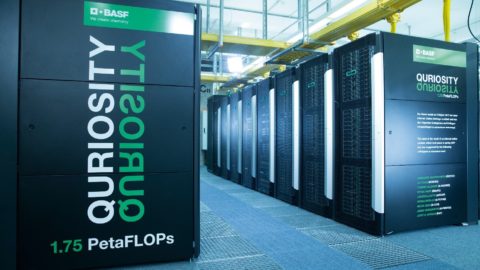
BASF is a globally renowned industrial group with an extremely diverse portfolio of chemical products, plastics, agricultural products to pure chemicals to crude oil and natural gas.
The company currently has over 95,000 employees and hundreds of branches operating in all five continents. With its large scale and position, product quality is always the top priority for BASF’s management. In order to constantly improve quality and improve competitiveness, BASF has invested in a series of modern technologies. Here are some examples:
Supercomputer supports product research and development
When it comes to digitizing promotion at BASF, strengthening product research and development capabilities is one of the most important goals. For example, to find the most suitable polymer structure out of thousands of possibilities, you need a high-performance calculator with above-average computing power – that’s why the Quriosity supercomputer is used.
With a computational power of 1.75 petaflops (1 petaflop equates to a quarter of a million operations after 3 commas per second), Quriosity provides 10 times more overall computation power than before for researchers. by BASF.
Thanks to Quriosity, BASF has built up more complex computational models, and the number of parameters that can be added has been significantly improved. This not only helps to reduce time to research new products, but also opens up a more diverse algorithm research space than before.
Take for example with a surfactant product. This is an ingredient in many products for everyday use, such as dishwashing liquid or lotions. Even at very low concentrations, surfactants can form structures that affect product performance, such as foaming or discomfort when applied to the skin. The efficiency of molecules is determined by their properties. With the help of Quriosity, BASF creates a huge database with molecular properties stored in feature files. These attributes are directly related to the performance of products through the application of artificial intelligence and machine learning. Accordingly, using Quriosity now helps BASF to study surfactant systems with high accuracy, thereby fostering the development of new formulations for home care, industrial & institutional hygiene and personal care products.
In addition to the benefits of research, digitization also creates a supply chain that is closely linked with customers, where the exchange of data cannot be interrupted. In addition, the data stored in the server is synchronized and transferred to the automatic analyzer which will provide early forecasts of production status to minimize failure rates and repair costs. All of which help to significantly improve the service quality of the company.
Productivity and Quality Office